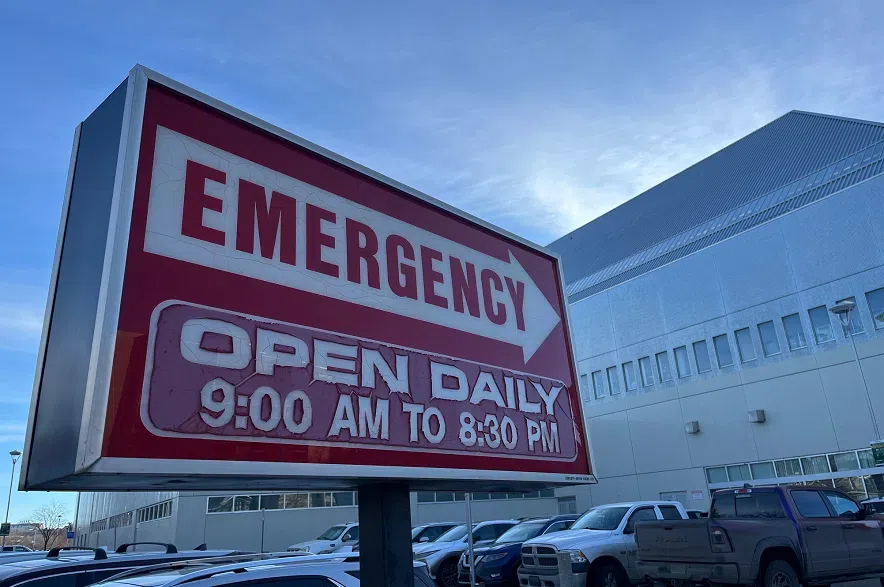Two years ago, the Government of Saskatchewan introduced its ambitious Health Human Resources Action Plan in order to help alleviate serious shortages of doctors and other health-care professionals in the province.
Since the launch of the $300 million plan, the government said Saskatchewan has added 87 family doctors and 131 specialist physicians and has hired more than 1,400 recent nursing graduates and almost 400 internationally trained nurses.
The action plan aims to improve recruitment, offer incentives for in-demand health-care workers, bolster health training opportunities, and improve retention of Saskatchewan’s existing workers.
“Each pillar has had major positive impacts by recruiting hundreds of high-priority health care workers, adding hundreds of post-secondary training seats and new programs for students, delivering incentives to benefit health service delivery in rural and northern Saskatchewan communities, attracting specialists, and investing in supportive programs to retain our valued health care workforce,” Everett Hindley, Saskatchewan’s health minister, explained in a statement.
The government’s goal when launching the plan in September of 2022 was to add 1,000 workers to Saskatchewan’s health system, but that multi-year goal did not come with a firm deadline.
In addition to the recruitment efforts, the government said the training aspect of the plan is also seeing success, with roughly 870 new training seats now available in 33 programs at post-secondary institutions in Saskatchewan thanks to an investment of more than $100 million.
“The expanded seats will produce more graduates in critical health care fields such as nursing, mental health and addictions, medical diagnostic imaging, physicians, and many other professions,” the provincial government explained in a statement. “Saskatchewan is also introducing four new programs not previously offered in the province: occupational therapy, speech language pathology, respiratory therapy and physician assistants.”
“Saskatchewan students now have more opportunities than ever before to train for a career in health care, which is pivotal for the sector and the people it serves,” said Colleen Young, Saskatchewan’s minister of advanced education.
The Saskatchewan Healthcare Recruitment Agency was also created as part of the plan, to help the province broaden its recruitment efforts. Terri Strunk, the agency’s CEO, said the organization centralizes all of the province’s health-care recruiting efforts under one roof.
“Our sole mandate is to implement strategies and best-in-practice activities to facilitate the regional, national and international recruitment, retention, transition and placement of health professionals in Saskatchewan,” Strunk said in a statement.
“There is still more work to do, but with the focused strategy of the Health Human Resources Action Plan, we are attracting top talent and addressing healthcare needs across the province.”
When it comes to incentives, the provincial government said its efforts have helped fill 350 hard-to-recruit positions in 50 communities around Saskatchewan.
“The province has also disbursed over $1.3 million in bursaries, such as nearly 150 Final Clinical Bursaries, nearly 150 paramedic bursaries and other scholarships and available grants to encourage students to pursue a health care career,” the government noted. “In addition, many graduates are eligible for the Graduate Retention Tax Credits and student loan forgiveness programs.”
The province’s retention efforts have seen a number of full-time positions created and expanded in high-priority fields like registered nursing, “to stabilize staffing in rural and northern areas.”
In addition, a number of programs have been put into place by the Saskatchewan Health Authority in order to enhance work environments and improve staff engagement. That includes a mentorship program that has had more than 200 participants, and efforts to develop a First Nations and Métis recruitment and retention strategy.
The scope of practice has also been expanded for pharmacists, nurse practitioners and advanced-care paramedics in an effort to improve access, shorten wait times, and offer more options for accessing health services.
The announcements come just ahead of Saskatchewan’s provincial election, which must be held on or before October 28.
While the Sask. Party government is touting its progress on health care, the Saskatchewan NDP has been working to highlight shortcomings in the province’s health-care system, including persistent issues in rural areas and poor conditions at large hospitals in Saskatoon and Regina.











